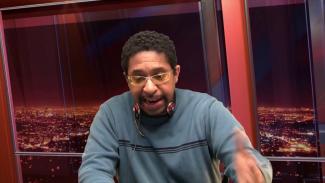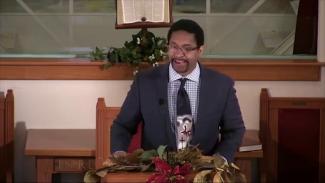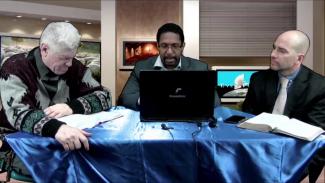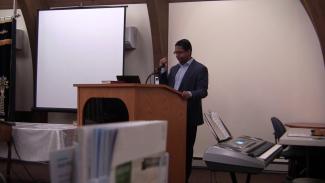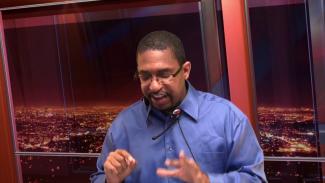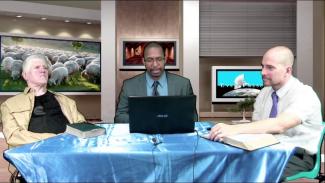How does scripture unit the Church? What is servant leadership and what does it look like? What does it mean for Christ to be head of the Church? What role does the church play in the salvation experience? How does Bible study and church discipline play a role in preserving church unity? How is the church organized for mission?
2018 Broadcasts
Choose from all 2018 broadcasts or select a topic from the menu.How can the church be united in worship? What is worship? Why do we worship? How does worship form the basis for the end time conflict? In response to what God has done we worship Him as creator, redeemer, judge, and King of the Universe. Satan, through false systems of worship, often tries to steal the glory and honor due only to God. This great controversy has been shown throughout salvation history.
Elder John Spellman speaks on the subject of the story of Elisha and the widow's oil. As believers in Christ, we are God's vessels. Are we empty and ready to receive the oil of God's Spirit? Do we sometimes pray while filling our lives with things that prevent God's blessings? Are we empty and ready to be filled?
Has God ever led you to a place in your life where you felt alone? Are there times when you feel alone because you don't understand God's leading and direction? Sometimes we can be where God wants us to be--even in the church--and still feel alone because others don't recognize God's working in our lives. Ruth and Naomi were in Bethlehem Judah, the place where God wanted them to be, yet still felt alone because no one understood where God was leading them.
Elder John Spellman speaks on the subject of dealing with conflict and the temptation to get even. How should Christians deal with anger? When other treat us wrong, how should we respond? What happens when a prince for a nearby nation abducts and rapes Jacobs daughter? How does this set a model of what not to do when others treat us wrong.How can believers exhibit patience in hardship?
What is the key to unity in the Church? How does Paul’s letter to the Ephesians give us a model for true unity? How does submission, obedience, and love allow unity to exist? What is God’s plan for unity in our relationships—especially between husband and wife? How should this unity impact the message and mission of the Church?
What was the focus of Jesus' last prayer? Why is this prayer called the High Priestly prayer? What does it mean to know God and how does this relate to obedience to the law? How can the church demonstrate unity in love and purpose? Is it possible to love another as Jesus demonstrated?
How can we preserve unity in the church? What creates disunity? How does God’s law connect with unity? What led to the schism in ancient Israel? How was the early church divided? What can we do to avoid division today? How can leadership and counsel influence unity? Should people be allowed to do whatever feels right to them? How can we rightly divide the word of Truth today?
How did the Fall of humanity in the Garden of Eden lead to brokenness in our world? How did sin break apart the relationships established in Creation? What happen amid human families and how did things change after the Flood? Is unity always a good thing? How can we understand the Tower of Babel?
What can we learn from Paul’s journey to Rome about sharing the gospel under difficult circumstances? What hardships did Paul overcome? How did God bless not only Paul but those around Paul? Did Paul always meet with success? What should we do when we’re doing our part and others don’t accept the gospel?
Naomi was alone because there was death in her family. The reality of death makes many people feel alone. Everyone can think of close friends or loved ones and relatives that have passed away. In Naomi’s situation, she lost the people that were closest to her. She was hit with the reality that the people she spent the majority of her time with were now no longer here. Had God abandoned her? Does God care when we feel alone because we lose people we love?
How did King Agrippa II and Festus respond to Paul’s rebuttal against his charges? What was central to Paul’s defense of his actions? How did the religious leaders attempt to set Paul up for an unfair trial? How did Paul counter these intentions? How could Paul be more concerned about spreading the gospel than his own personal safety? What can we learn from the king and the governor about people in powerful positions?


